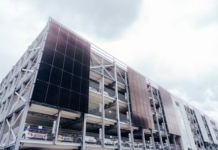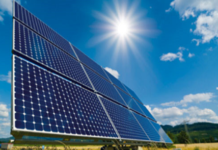
CHENNAI: The Chennai Metro Rail Ltd, a joint venture of the Central and Tamil Nadu governments, intends to install solar power plants at its stations and the Koyambedu maintenance depot to provide 6 MW of electricity.
Bengaluru-based CleanMax Solar will put up and own the solar plants and sell the power to Chennai Metro. The price at which the energy will be sold has not been disclosed, but a press release from CleanMax says Chennai Metro would save ₹1.5 crore a year in energy costs.
The order was won through a bidding process.
The solar panels would mostly be installed on roofs of stations, although some could be ground-mounted too. The exact locations of these plants is yet to be decided.
CleanMax Solar’s Co-founder and Head-Business Development, Andrew Hines, said the project would be executed in twelve months. He said the power purchase agreement for the sale of electricity would be signed in a week or two.
‘Opex’ model
The project exemplifies a growing trend in the solar industry in India — the ‘opex’ model — in which the project developer invests in a plant at the premises of the customer, and makes a business selling energy.
Many companies are now looking at this option, because they don’t have to assume the costs and risks of putting up a solar plant. Instead they buy only energy, which is typically at a cost lower than what the company would otherwise incur.
CleanMax Solar is in the vanguard of this trend, having put up over 85 MW of solar on ‘opex’ basis. The company recently tied up with Hitachi of Japan to offer solar energy to Japanese companies in India.
Delhi-based Amplus Solar and Aspiration Energy Ventures Chennai are among other active ‘opex’ companies.
Investment proposal
“It is not that corporates are not in a position to invest in solar — all our customers have plenty of cash,” Hines said, adding that the involvement of capital expenditure, however, would “complicate” matters. Typically, the investment proposal would need to be taken to the board and someone who is sceptical can always poke holes.
However, if the proposition is that they will get power at a significant discount to power supplied by the electricity distribution company, and without any upfront investment from their side, and if the equipment performance risks are taken care of the energy supplier, “it is hard for someone to object to that kind of proposition” Hines said.
India has 1,247 MW of rooftop solar power capacity according to Bridge-to-India, but the consultancy expects this to grow to 15 GW by 2022.
Source: thehindubusinessline.com


















